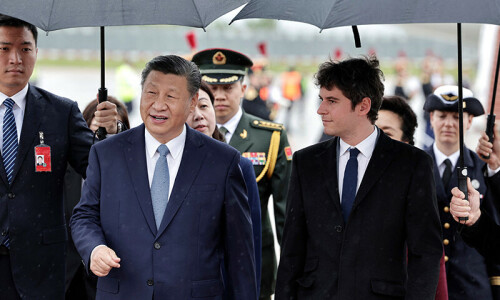DZHEZKAZGAN: US astronaut Scott Kelly and Russian cosmonaut Mikhail Kornienko returned to Earth Wednesday after spending almost a year in space in a ground-breaking experiment foreshadowing a potential manned mission to Mars.
The 340-day mission saw Kelly break the record for the longest single stay in space by a US astronaut, while Kornienko is now fifth on the list for lengthiest mission by a Russian cosmonaut.
“We have landing,” Russian Mission Control confirmed after the trio touched down southeast of the settlement of Dzhezkazgan in central Kazakhstan at around 0430 GMT.
After returning from his lengthy stint in space Kelly was clearly in high spirits as he was lowered to the ground by burly Russian rescue workers at the landing site.
“The air out here feels great. I've no idea why you guys are so bundled up,” NASA TV reported him as saying as he sat upright in a chair on the steppe in temperatures just below zero.
Kelly and Kornienko returned with Russia's Sergei Volkov, who was stationed at the ISS for over five months and was met upon landing by his father, retired cosmonaut Aleksandr Volkov.
The “one-year crew” mission — which began on March 27 last year — was the longest by any astronauts aboard the ISS and seen as a vital chance to measure the effects of a prolonged period in space on the human body.
They have been subjected to a battery of tests and other experiments in preparation for a future manned mission to Mars and beyond.
Weightlessness reduces muscle mass and bone density and is believed to diminish eyesight by increasing cerebrospinal fluid around the optic nerve.
Kelly, 52, was also part of an experiment comparing his development and changes in space with his identical twin brother — Mark — back on Earth.






















































